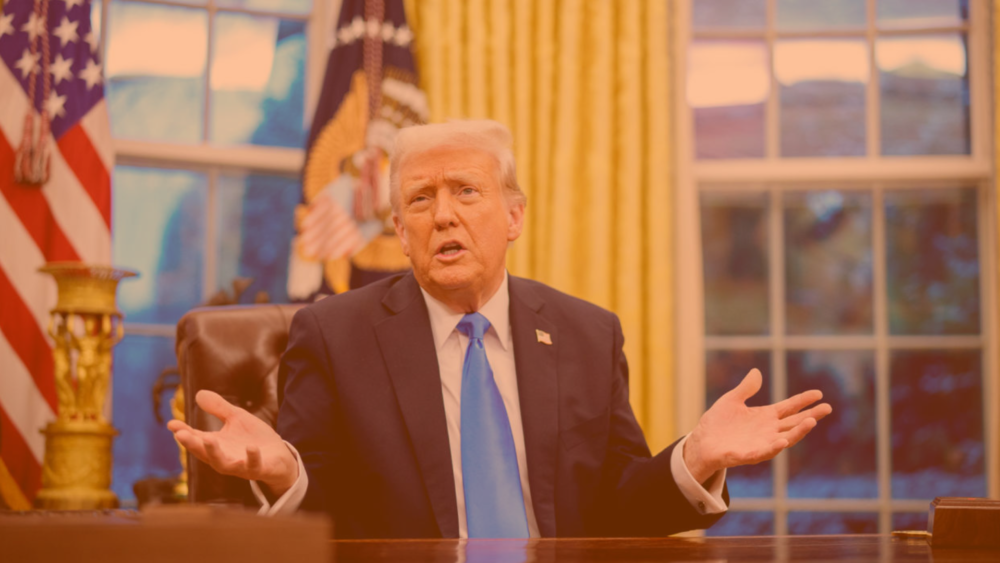The Trump Shock has revealed just how unprepared the UK and EU are for a collapsing global order
There is a delicious irony in the way our governing centrists, in the United Kingdom and the European Union, are lamenting the Trump Shock. They wax lyrical about the globalised, financialised capitalist order which they now mourn. They portray it as a golden age, a natural global system of free trade and benign capital flows. Are they truly oblivious to the facts of recent economic history? Do they not know that the grossly imbalanced, extractive, Ponzi-like financialised global capitalism that spawned the crises which propelled Donald Trump into the White House was also birthed by a major shock? The Nixon Shock?
Centrists admonish the Trump boys for having turned on their allies, but they forget that the Nixon Shock was equally, if not more so, an intentional and devastating assault on Europe, Japan, and the UK. They seem unaware that, precisely because of the economic devastation caused in the 1970s and 1980s – including in America’s heartlands – the Nixon Shock’s architects, men like Paul Volcker, achieved their main long-term objective: to ensure that American hegemony grew alongside America’s trade and government budget deficits, not to mention on the back of financial rents earned at the expense of real value creation.
Many seem puzzled that, while the EU and Britain differ in important ways – mainly in that the EU is running a huge surplus with the United States while the UK remains a deficit economy – our centrist regimes on both sides of the Channel seem equally at a loss. There is a reason for this. Since 1971, our economies have been hooked into the same US-centric global surplus recycling mechanism whose deep crisis is steering our politics into the arms of the xenophobic ultra-right – with our electorates increasingly pummelled by nasty undercurrents fuelled by the crisis of this global recycling mechanism that once drove Europe’s and Britain’s growth and relative stability.
The essence of this global recycling mechanism (which I once labelled The Global Minotaur) is simple: since the 1970s, America’s deficits provided Germany, Japan, and later China the demand for their factories’ manufactures. In return, the EU, Japan, and later China sent their accumulated profits to Wall Street and its appendage, the City of London, to be recycled into the US rentier sector: private and public debt, some equities, and real estate. A Chinese official once described this mechanism to me as a Dark Deal. “Our Dark Deal with the Americans,” he explained, “turns on the US trade deficit, which keeps demand for our manufactures high. In return, our capitalists invest the bulk of their dollar superprofits into America’s rentier economy – Finance, Insurance, and Real Estate. Once this process got underway,” he concluded, “America shifted much of its industrial production to our shores.”
The problem with this global recycling mechanism was that, to function smoothly, it had to generate larger and larger imbalances – greater trade deficits for the US, and more accumulated rents for Northern Europe and East Asia. But there are limits to how large imbalances can grow, both in terms of trade deficits and in terms of profits versus rents. Ruptures are inevitable. The longer they are delayed, the greater the pain they inflict – a truth that centrists never acknowledged, not even when the Crash of 2008 was tearing down their houses.
Trump’s boys have dared to ask the pressing question that the centrists refuse to countenance: what comes after the Dark Deal, once the imbalances built on the US trade deficit prove unsustainably massive?
Their proposed solutions may seem wrongheaded, half-baked, even crazy, but at least Trump’s team has identified the American ruling class’s problem: how to maintain US hegemony in the face of America’s rapid deindustrialisation, with the Triffin Dilemma hanging over their heads, and now that financial rents are being replaced by what I call cloud rents. In contrast, UK and EU politicians are utterly out of their depth, running around like decapitated chickens, oscillating between vacuous bravado and servility to The Donald.
Guy Standing suggested that today I focus on how Europe and the UK should respond to the Trump Shock. I could talk endlessly on this. I could, for example, recommend not just a 10% cloud tax by which to clobber Big Tech but also repealing all regulations that we introduced in Europe to comply with Bill Clinton’s despicable ‘anticircumvention’ Act – which is why you can’t buy a jailbreaking tool so your printer can recognise and use cheaper, generic ink cartridges. I could recommend that our governments rescind all tariffs imposed at the behest of Washington on excellent Chinese solar panels and electric vehicles, while entering into a serious EU-UK-Chinese dialogue with a view to stimulate our economies in a coordinated fashion, so as to stem the recessionary wave coming from Trump’s America. I could recommend that Europe begins its own peace negotiations with Russia over Ukraine, rejecting the plunder of Ukraine’s underground wealth by Trump’s boys.
But, in all honesty, I can’t find the energy to make these recommendations when I know that the Radical Centre in power, in Britain and in the EU, will do everything they can to not do any of that – in exactly the same way they botched the euro crisis or squandered the opportunities offered by the pandemic. Determined to remain wedded to America’s rentier economy, Europe’s and Britain’s elites will not deviate from current policies – not unless we overthrow them first. But for this, we need an agenda bolder than Trump’s and Farage’s and, of course, a radically humanist one – an agenda that is not fearful of radical proposals like a public green investment bank, a trust fund for everyone yielding an unconditional personal income, the termination of all quasi-energy markets, the socialisation of housing and, last but not least, a surge in corporations practising one-employee-one-member-one-vote.
Meanwhile, as we struggle to give political representation to such an agenda, all eyes on China – the only country, for better or worse, that seems willing and able (though not predestined) to counter Trump’s bullies, to boost green energy production, and to work toward turning the BRICS into a new Bretton Woods serving the interests of the Global South.
For more thoughts on the world’s response to the Trump Shock, watch this space.
Do you want to be informed of DiEM25's actions? Sign up here















